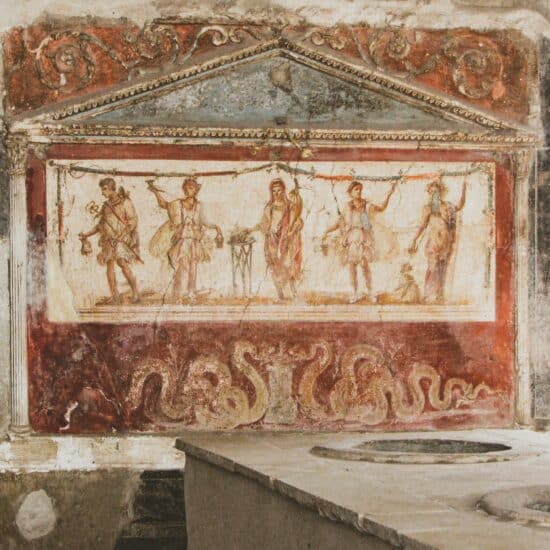 A Sweeping Victory
A Sweeping Victory
Formations: January 22, 2017
Scripture: Romans 8:26-39
 Michael K OlmstedAlthough Romans is aptly seen as Paul’s greatest theological statement, I think of it as his ode to God’s unequaled love. Some see today’s text as affirmation of the doctrine of predestination, that each of us comes into this world with a predetermined pattern of destiny. Such an interpretation denies grace and God’s very character. We are one tiny point in eternity, but God graciously invites us to participate in the ultimate fulfillment, celebrating with Christ or lost in a darkness of our own making.
Michael K OlmstedAlthough Romans is aptly seen as Paul’s greatest theological statement, I think of it as his ode to God’s unequaled love. Some see today’s text as affirmation of the doctrine of predestination, that each of us comes into this world with a predetermined pattern of destiny. Such an interpretation denies grace and God’s very character. We are one tiny point in eternity, but God graciously invites us to participate in the ultimate fulfillment, celebrating with Christ or lost in a darkness of our own making.
Our focus begins with the ultimate promise of God’s companionship throughout life: “The Spirit comes to help our weakness” (v. 26). We all know failure, weakness, fear, regret and uncertainty, even to the point we don’t know what to say to God or how to go on living. Paul reminds us that God’s Spirit, who inhabits our life from the moment we accept Christ as Lord, communicates our needs to God even when we are unable to articulate them! But even more powerful than that is the truth that the Holy Spirit speaks for us “consistent with God’s will” (v. 27). I cannot count the number of times my prayer to God has simply been “HELP!” because I could not really understand my crisis or see a solution. But God understands.
Now, carefully read what Paul says immediately after this beautiful promise of the Holy Spirit’s intercession on our behalf. “We know that God works all things together for good for those who love God, for those who are called according to his purpose” (v. 28). Pay attention to the relationship of subject and verb in that statement. Things do not work for good. God does. Everything that happens is not good (or God’s will) but God can bring good out of the difficult and life-shattering events of this creation. We understand with our heads that we live in a fallen world, but our hearts are rarely rational. So the companionship and intercession of the Holy Spirit is vital to our spiritual stability and growth, to our being God’s kind of people.
Because we prefer to box life into a neat system of cause and effect – for instance, drive your car into a wall and there will be harm and destruction – we view life the same, forgetting that God is present and there is more than a system of physical laws. We are granted a glimpse of God, who, in his perfect gracious will, has decided to love us even before we were born and helps us “be conformed to the image of his Son” (v. 29). God has chosen to call us, make us righteous and even glorify us (v. 30).
What is the conclusion Paul celebrates? “If God is for us, who is against us?” (v. 31). From the world’s perspective this is beyond belief. Neither my local newspaper nor the Wall Street Journal this week mention this idea, either in their news reporting or on the editorial page.
What will we say about these amazing promises? God gave his own Son for us, so why can we not see he will give us everything else we need to live for him (v. 32)? Think about it: “Who will separate us from Christ’s love? Will we be separated by trouble, or distress, or harassment, or famine, or nakedness, or danger, or sword?” (v. 35). Paul gives the resounding answer to all these obstacles, pains and injustices in the world: “But in all these things we win a sweeping victory through the one who loved us” (v. 37).
To reduce this text to a theory of predestination concerning who God chooses for heaven or hell is to miss the hope of God in Christ for all who believe. Put the theories of Calvin and Arminius aside and hear Paul: “I’m convinced that nothing can separate us from God’s love in Christ Jesus our Lord: not death or life, not angels or rulers, not present things or future things, not powers, or height or depth, or any other thing that is created” (vv. 38-39). How is that for an exhaustive list?!
I wonder, was it easier for those first century recipients of Romans to hold on to their faith because the cross and resurrection were closer in time? Our supposed technological advances have not altered our spiritual needs but have intensified violence, poverty and disaster.
Paul could be writing this today because of our desperate need for spiritual hope. God’s grace is more powerful than debilitating disease, famine, wars and injustice. God understands the heart of humanity, the trajectory of history and the power of hate, but none of these could deter his love or deny its great price. Even knowing how weak we can be, he understood there would be only one way to build a relationship with us. There is always an answer to war, always a remedy for injustice, always a plan for success, but the “always” for the human heart does not exist within our race.
So we are offered the ugliest of human images for our hope, this vile and torturous cross, this instrument of rejection and death. But God did not use this cross as a mere emblem of suffering and guilt. Put aside all the elaborate theology of atonement and the emotional poetic descriptions to see the depth of love the Eternal God has for each of us. The bloody cross is bare…the darkened tomb is empty…but Jesus the Christ is alive and offers us life and hope beyond any of the challenges we face. Here is our sweeping victory: “If God is for us, who is against us?”
Retired after more than 45 years in pastoral ministry, Michael K. Olmsted enjoys family, supply preaching and interim work, literature, history, the arts and antiques.
Formations is a curriculum series from Smyth & Helwys Publishing, Inc. through NextSunday Resources.
The PDF download requires the free Acrobat Reader program. It can be downloaded and installed at https://get.adobe.com/reader.



